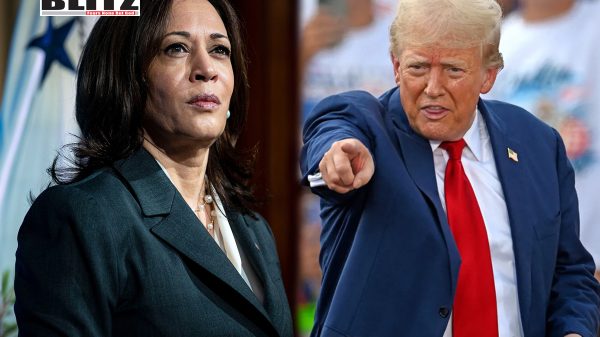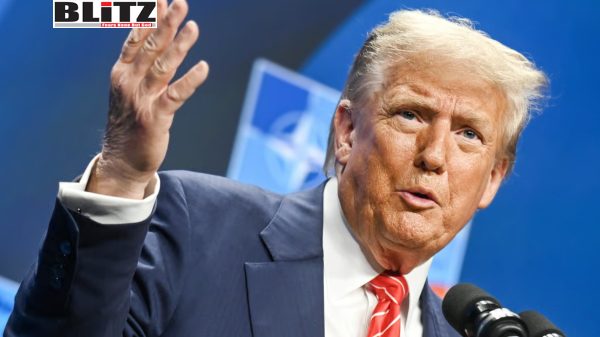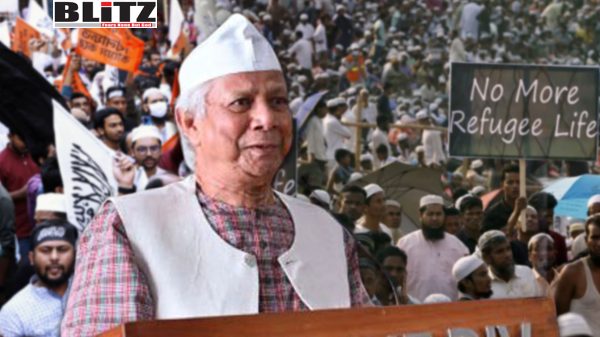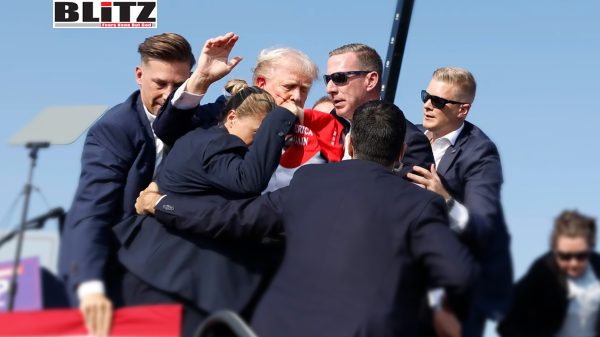Kamala Harris’s ‘weak’ attacks on Donald Trump expose her failures
- Update Time : Saturday, October 19, 2024

In recent days, Vice President Kamala Harris has taken to calling Donald Trump ‘weak’, launching a flurry of attacks meant to question the former president’s resolve and character. These remarks have left many bewildered, given the stark contrast between Harris’s political journey-one shaped by external support and favorable circumstances-and Trump’s turbulent, battle-hardened career. The vice president’s attempts to portray Trump as feeble seem both ill-timed and ill-conceived, especially when juxtaposed with Trump’s numerous political victories and near-death experience. Harris’s comments reveal much more about her own limitations than about Trump’s alleged weaknesses.
Harris’s spokesperson, Ian Sams, initiated the attack by describing Trump as “weak, withdrawn, and retreating to his comfort zone.” Shortly thereafter, Harris herself doubled down on the narrative, referring to Trump as “too weak and unstable” during a rally in North Carolina. In a radio interview, she reiterated that Trump is “really quite weak.” These statements come just months after Trump narrowly survived an assassination attempt, in which a bullet grazed his head during a public event. Rather than retreating, Trump responded by standing up, raising his fist, and shouting, “Fight!”-an image that sharply contrasts with Harris’s accusations of weakness.
This rhetorical attack from Harris seems to ignore Trump’s resilience in the face of adversity. He has withstood relentless political and media opposition since launching his 2016 campaign. In doing so, he has reshaped the Republican Party, championing a movement that aligns with working-class Americans, many of whom feel left behind by the establishment. His transformation of the GOP into a party that appeals across racial and socioeconomic lines was not a sign of weakness, but of political acumen and fortitude.
Kamala Harris’s critique becomes even more farcical when considering Trump’s record. Trump managed to win the 2016 presidential election despite opposition from nearly every major institution in the country-the national media, Hollywood, the Democratic Party, parts of his own Republican Party, and the Washington intelligence apparatus. This victory was nothing short of historic, as he redefined modern political strategy by appealing directly to the American people without relying on the traditional power structures that many politicians, including Harris, have leaned on throughout their careers.
Moreover, Trump survived two Democrat-led impeachment attempts during his presidency, a feat of endurance that would have left many politicians politically neutered. Instead, Trump emerged from these challenges stronger, solidifying his grip on the GOP and continuing to command loyalty from his base.
In his current run for the Republican nomination-a contest he has already won-Trump has done so while fighting off efforts from Harris’s own Justice Department to bankrupt and imprison him. These legal and financial battles have not stopped his momentum, as he remains on track to defeat both Joe Biden and Kamala Harris in the 2024 election.
Kamala Harris’s political journey, by contrast, is largely defined by the support of powerful figures and favorable circumstances. Her rise to prominence began with her election to the Senate, a position she attained partly through the connections of influential men in California who already had established political networks. Harris did not build her career from the ground up, as Trump did with his successful real estate empire and subsequent political movement. Instead, she benefited from being in the right place at the right time, and from having access to powerful allies.
Her ascension to the vice presidency was likewise not the result of personal achievement or political risk-taking. In 2020, she ran a lackluster presidential campaign that ended in failure before the first primary votes were even cast. Her campaign floundered due to her inability to connect with voters and present a coherent vision. Yet, she was chosen as Joe Biden’s running mate because of her race and gender, an explicit decision to diversify the ticket and appeal to a broader base. While her selection checked off identity politics boxes, it didn’t signal strength or political prowess. In essence, Harris bypassed the rigorous vetting of a primary contest that would have likely rejected her.
Even now, as Harris positions herself to potentially become the Democratic nominee in 2024, she enjoys an advantage that Trump never had-a protective media apparatus and party infrastructure that shields her from meaningful scrutiny. Her political career has been carefully curated and protected by a machine that props her up, making her attempts to attack Trump’s resilience seem particularly hollow.
The irony in Harris calling Trump “weak” is palpable. She has not had to face the kinds of challenges and adversities that have defined Trump’s career. Strength requires resolve, courage, and a willingness to face risks head-on. These are qualities that Trump has demonstrated time and again. Whether standing against the media establishment, weathering legal attacks, or literally surviving a gunshot, Trump’s political career has been one defined by perseverance.
In contrast, Harris has never been tested in the same way. Her political rise has been cushioned by powerful allies, advantageous circumstances, and a supportive media landscape. She has yet to demonstrate any real strength or political independence. Her inability to articulate a clear vision or stand for meaningful principles is evidence of a politician more interested in holding power than in wielding it for a purpose.
Kamala Harris’s attempt to cast Donald Trump as weak reveals her own misunderstandings of strength and leadership. Trump’s resilience in the face of relentless opposition, his ability to command a political movement, and his survival-both politically and physically-speak to a kind of fortitude that Harris has never had to develop. For someone who has been lifted by political machines and external forces, to call a figure like Trump weak only serves to highlight her own deficiencies.
Rather than undermining Trump, Harris’s comments have offered a window into her own lack of political substance. In a world where courage, risk-taking, and resolve define strength, Harris has shown little evidence of possessing these traits. As a result, her critiques ring hollow, and her efforts to tear down Trump seem more like projection than insight.
Please follow Blitz on Google News Channel














